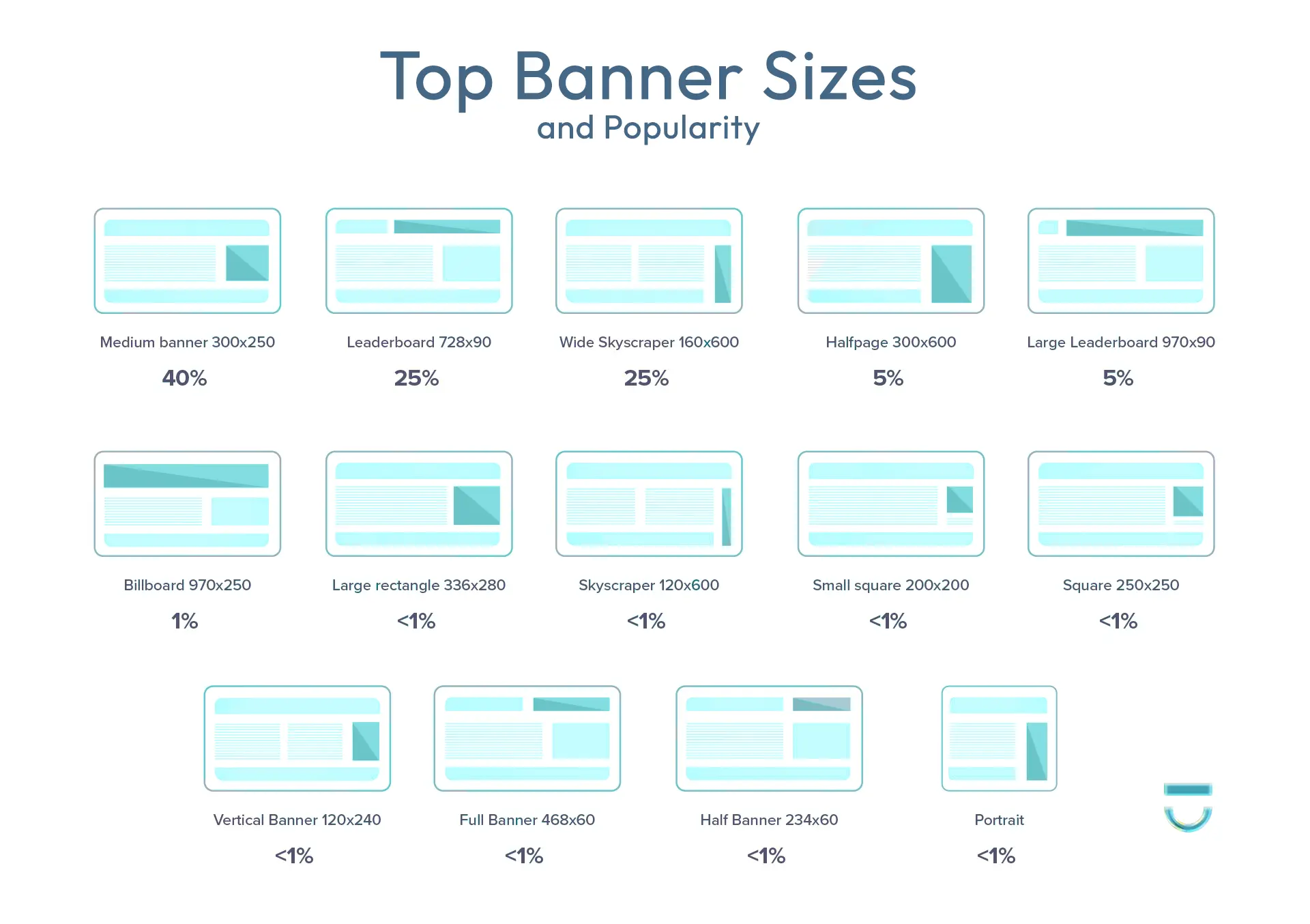Website advertising banners come in a variety of sizes, and some of the most common and popular ones include:

- Leaderboard (728×90 pixels): This is a standard size for the top of web pages.
- Full Banner (468×60 pixels): A traditional banner size, though less common now.
- Large Rectangle (336×280 pixels): Often used within text content or at the end of articles.
- Medium Rectangle (300×250 pixels): Highly popular, used in sidebars or within text content.
- Wide Skyscraper (160×600 pixels): A tall, narrow banner typically placed in a website’s sidebar.
- Skyscraper (120×600 pixels): Similar to the wide skyscraper but slightly narrower.
- Half-Page Ad (300×600 pixels): Large format, offers a significant space for advertisers, usually placed in sidebars.
- Large Leaderboard (970×90 pixels): Wider than the standard leaderboard, often used for more impactful visual ads.
- Small Square (200×200 pixels): Used in sidebars and smaller spaces.
- Square (250×250 pixels): A bit larger than the small square, also used in sidebars and smaller spaces.
- Mobile Leaderboard (320×50 pixels): Specifically designed for mobile platforms.
- Billboard (970×250 pixels): A very large format for high-impact advertising, often placed at the top of web pages.
These sizes are recognized by the Interactive Advertising Bureau (IAB) and are widely used across different websites and ad networks. The choice of banner size can depend on the website layout, the type of content, and the campaign objectives of the advertiser.

